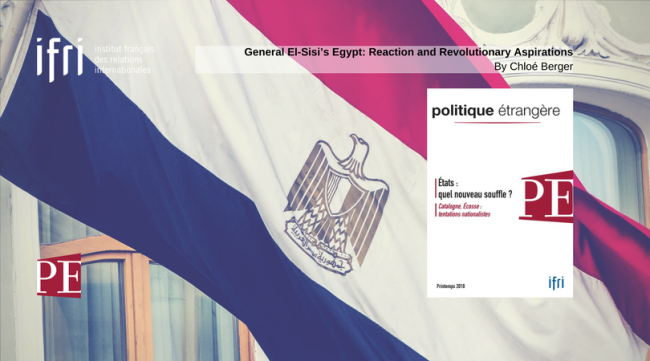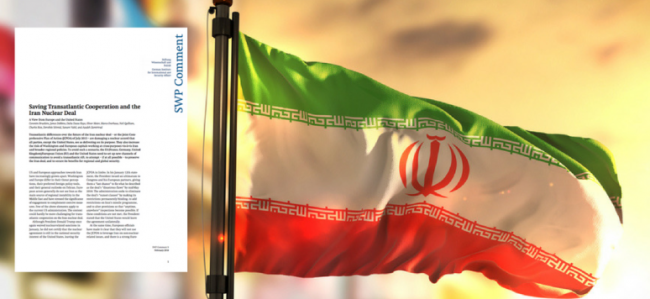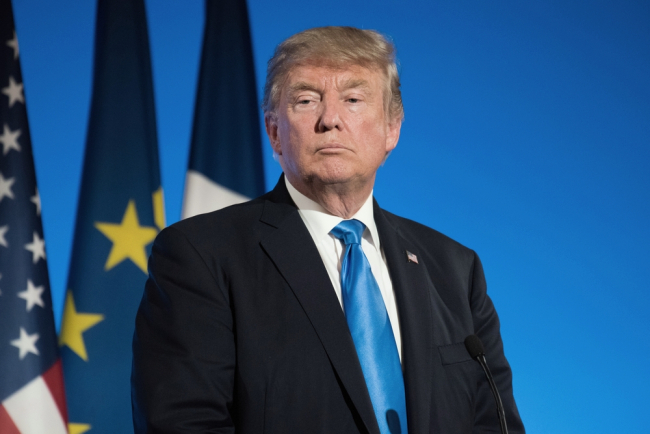North Africa and Middle East
Analysis of changing dynamics in the North Africa/Middle East region, against a backdrop of increasing security crises and their political, economic and energy consequences.
Related Subjects

General El-Sisi’s Egypt: Reaction and Revolutionary Aspirations
The Egyptian presidential election of spring 2018 will, in all likelihood, result in Abdel Fattah El-Sisi maintaining power, given the tight control over the opposition.
Saving Transatlantic Cooperation and the Iran Nuclear Deal. A View from Europe and the United States
Transatlantic differences over the future of the Iran nuclear deal – or the Joint Comprehensive Plan of Action (JCPOA) of July 2015 – are damaging a nuclear accord that all parties, except the United States, see as delivering on its purpose. They also increase the risk of Washington and European capitals working at cross-purposes vis-à-vis Iran and broader regional policies. To avoid such a scenario, the E3 (France, Germany, United Kingdom)/European Union (EU) and the United States need to set up new channels of communication to avoid a transatlantic rift, to attempt – if at all possible – to preserve the Iran deal, and to secure its benefits for regional and global security.

Iraq after Daesh
Going beyond the numerous claims of rupture, is Trump overturning the international order and the place occupied in it by the United States?
Trump, un an après. Un monde à l'état de nature ?
In the week following Trump’s election, Ifri published a study to identify the likely changes in U.S. foreign policy. From the outset, this election appeared as a change in the U.S.’ trajectory, with consequences on the power relations and functioning of the international system.
Nomadic Diplomacy: The Case of Yemen
Along with Syria and Libya, Yemen is the third Arab country experiencing civil/international war, with the same consequences for diplomatic activity: because of the closure of embassies in situ and the security situation, states have had to develop a “nomadic” policy of contacts in third countries with their counterparts, according to their places of exile, which the following article designates in terms of Yemen as a test in “map-making.”

The Arctic: a Strategic Exploration
Two strategic regions are at the focus of this back-to-school issue of Politique étrangère.
A Victory to End All Victory: Iraq after the Islamic State
The offensive on Mosul against Islamic State crystallises all of the political, social and security issues which determine the future of the Iraqi state.
Three Generations of Jihadism in Iraqi Kurdistan
The aim of this report is to describe and explain how structural changes have affected three generations of jihadists in Iraqi Kurdistan: The Jihadi generation of the 1980s, that of Ansar al-Islam in the 2000s and that of the Kurds of Islamic State (ISIS) or Daesh in the 2010s.
Foreign Policy Challenges for the Next French President
France’s current presidential campaign has created an unprecedented situation fuelled by revelations and a total absence of restraint, but it has not truly taken account of the disruptions of the last year: Brexit, the attempted coup in Turkey, the election of Donald Trump, the recapturing of Aleppo by Bashar al-Assad, Xi Jinping’s declarations about “economic globalization”, or the behavior of North Korea. The debate, or rather its absence, can be looked at in two ways.
Trade without Religion between Turkey and Syria
A saying claims that trade has no religion; it even adapts to a war situation, as demonstrated by the real-time reorganisation of trade channels at the Turkish-Syrian border.
Algeria: Cosmetic Change or Actual Reform?
Algeria has emerged as something of an “exception” across the Middle East and North Africa (MENA) region, and while the recent elections have been marred by widespread allegations of fraud, the results have effectively consolidated the regime’s grip on power thus ensuring its complete monopoly over the country’s reform process.
The Arab Revolts and Southeast Asia: What Impact and What Influence?
Southeast Asia experienced its own political upheavals well before the Arab revolts. Nevertheless, the wave of popular uprisings that shook the Middle-East and North Africa region goes far beyond the region’s boundaries, and Southeast Asia is no exception to the global crisis of confidence towards governments.
The Obama Administration and Syria: From "off the table" to on
A quick look at the news dealing with the Syrian uprising the last year shows a slow progression from protests and civil resistance towards violence. The Obama Administration’s policy dealing with what many have called “slow motion revolution” has evolved in fits and starts, with mixed episodes of confusion, assertiveness, denial and drift.
South Africa and the Arab Spring: opportunities to match diplomacy goals and strategies
This paper highlights how the Arab Spring magnified a two-dimensional gap in South Africa’s foreign policy. First that South Africa does not have a vision which reconciles demands for achieving the goals of protecting human rights, sovereignty, and multilateralism; second, that its strategies do not meet set goals. The paper then provides tentative explanations to this gap. It ends by elaborating what in the “African Awakening” and in the midst of the Arab Spring are opportunities for South Africa to overcome this gap.
Jewish Activism in the United States: Is J Street a Passing Phenomenon?
Created in the Fall of 2008, the J Street movement seeks to represent those in the U.S. Jewish community who would like Washington to be more active in supporting a lasting peace in the Middle-East.
Libya: Old or New Picture? Risks of political uncertainty for the gas and oil business
Libya has an opportunity to get back on track. The end of embargoes and sanctions after the conclusion of the “February Revolution” is favoring a fast production growth.
U.S.-Moroccan Relations: How Special?
U.S.-Moroccan ties have sometimes been described as a "special relationship." This paper explores the bilateral relationship to investigate how special it really is.
U.S. Foreign Policy and the Israeli-Palestinian Conflict: A View from Palestine
How will the US respond to the changing Palestinian and Arab paradigm?
U.S.-Algerian Security Cooperation and Regional Counterterrorism
This paper explores the recent evolution of security cooperation between the United States and Algeria, which have forged a strong partnership on counterterrorism despite lingering mutual distrust.
Trafficking in the Sahel-Saharan Zone: Features and Stakes
On November 5th 2009, a cocaine-loaded Boeing 727 aircraft arriving from Venezuela was discovered torched and emptied on a makeshift airstrip in the Malian desert (Gao region). The Sahel-Saharan area is clearly a contact zone between very distant worlds.
Support independent French research
Ifri, a foundation recognized as being of public utility, relies largely on private donors – companies and individuals – to guarantee its sustainability and intellectual independence. Through their funding, donors help maintain the Institute's position among the world's leading think tanks. By benefiting from an internationally recognized network and expertise, donors refine their understanding of geopolitical risk and its consequences on global politics and the economy. In 2025, Ifri supports more than 80 French and foreign companies and organizations.
















